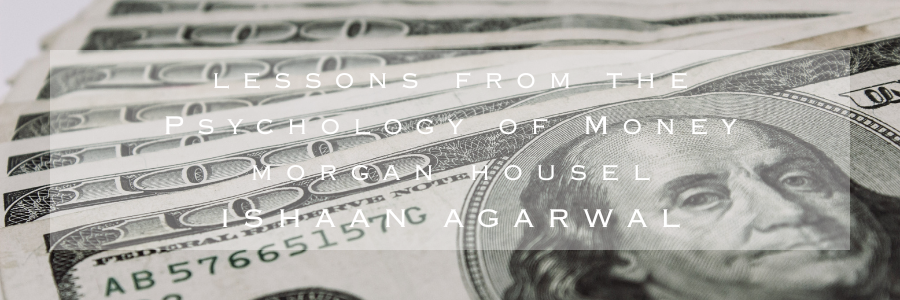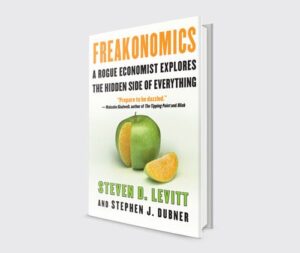My repository of thoughts on interesting ideas.
Lessons From The Psychology of Money

As I begin my investing journey, I have sought sources of insight to inform my decisions and thought processes. Morgan Housel’s The Psychology of Money has been one such profound source that has illustrated to me the intricacies of the psychology of money management.
Housel is a Collaborative Fund partner and a former Motley Fool and Wall Street Journal columnist. He has authored numerous business books, including The Psychology of Money, Same as Ever: The Guide to What Never Changes, and Everyone Believes It; Most Will Be Wrong.
The Psychology of Money is a refreshing read that is cognizant of the reader’s time and attention span; thus, it conveys twenty disparate points in a concise 250-page book. However, Housel does emphasize a few key takeaways via a web of connections that he draws adjoining different ideas and anecdotes.
Luck and Risk: Two Sides of the Same Coin
Housel’s book challenges the conventional narrative that financial success is dependent on individual effort or skill. Instead, he promotes the significant role of luck and risk in our financial outcomes. Such luck and risk may emerge as the family one is born into, being at the right place at the right time, or the effects of the efforts of those around one. This is reminiscent of Stoic mentality, which involves recognizing the variables within one’s control and those that are not. By acknowledging the presence and consequences of luck and risk, we may approach our lives with greater humility and prudence.
Compound Growth is King
The power of compounding is central to growing wealth and investing. Housel emphasizes this idea’s importance numerous times, iterating and advising readers to extend their investment timelines. He supports this well-researched concept by exploring the mathematics of Warren Buffet’s investing fortune. Buffet is not the best investor in the world. That title belongs to Jim Simons, who averaged a rate of return of 66%. However, Simons did not begin achieving such returns until his 50’s, and had he invested at his 66% rate for the same 70-year span as Buffet did, he would be worth $64 quintillion. Buffet’s extensive, long investing career that began as a teenager has been the driving force behind his success and fortune.
The Value of Flexibility
Housel recognizes that money cannot buy happiness, but he does offer an alternative–freedom. Wealth gives you control over your time, which he argues is the most valuable asset. It allows one to gain the autonomy to do what one wants, with whom one wants, when one wants, for as long as one wants to. This ability is “the highest dividend that exists in finance”. However, to capitalize on this intrinsic value of wealth, one must have a sense of “enough”. This can be likened to the economic concept of diminishing returns, as beyond a certain threshold, greed and the pursuit of wealth do not offer one gain in life satisfaction.
Reasonable > Rational
While finance and economics encourage rational behavior without the bias of emotions, Housel encourages reasonable behavior that infuses certain expectations and socially conscious characteristics into plans. The statement that best exemplifies this is, “…the foundation of, “does this help me sleep at night?” is the best universal guidepost for all financial decisions.” The readers of The Psychology of Money are urged to identify their risk tolerance, financial goals, and ambient circumstances to better make comfortable decisions that account for more variables than cold, hard math.
Everyone is Different
In the preamble of his book, Housel clarifies that he is not a financial guru and his goal is not to provide a single, actionable course of action that readers can implement to become wealthy. Rather he advocates the thought that each individual has different financial goals, risk tolerances, and timelines, and thus, should be wary of accepting advice from those “playing a different game”. Therefore, the first step for prospective investors is to define the game you are playing.
This book containing timeless lessons has something for everyone. For some, it may be the steps to becoming an intelligent investor, and for others, it may be the lessons on lessons on greed and the value of time. Housel is a highly talented writer who has crafted an engrossing narrative that, among a sea of distractions and sirens, shines like a beacon illuminating the path forward for its readers.



